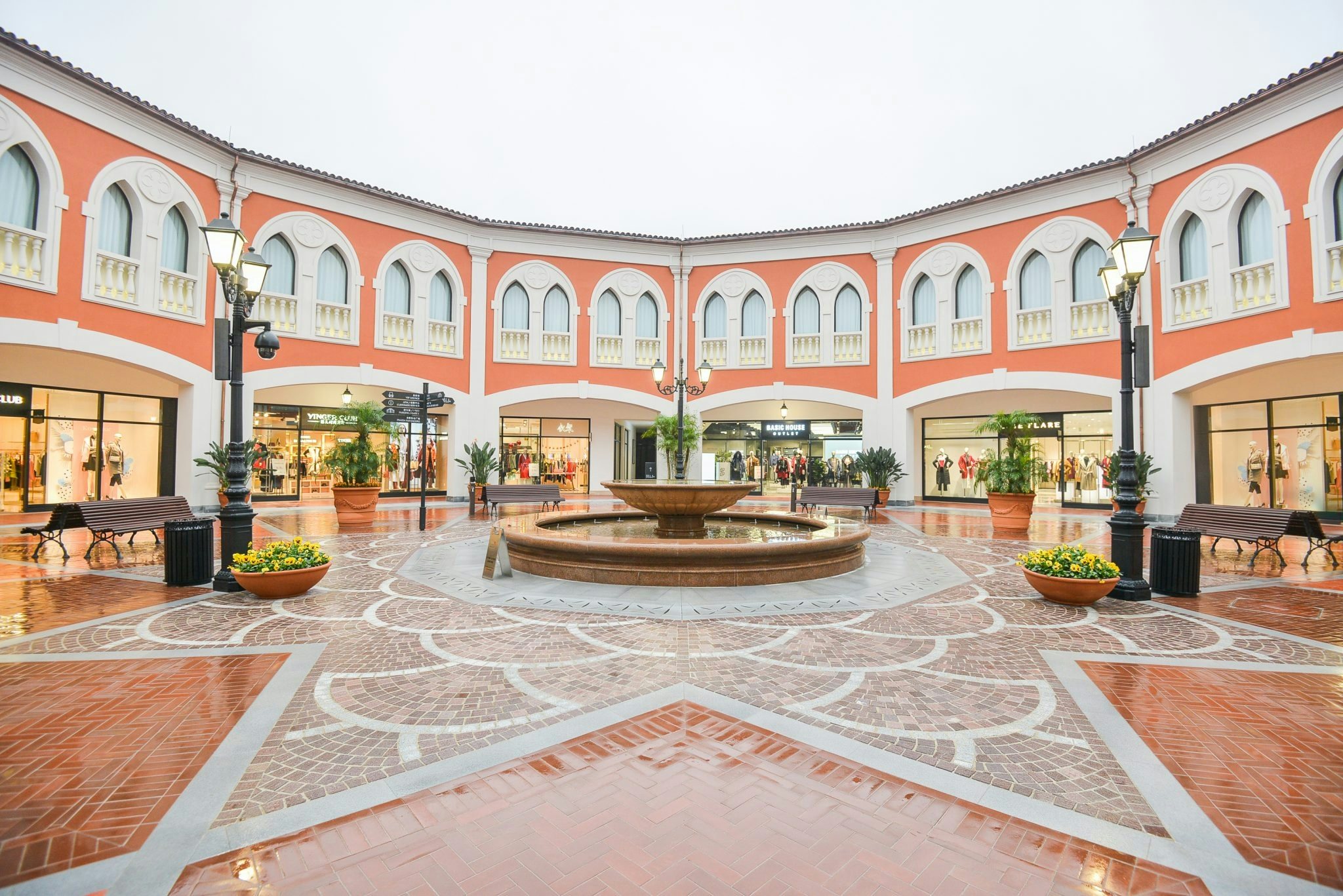Outlet malls are known for staying a step ahead of the experiential retail game. Often located a short drive outside of tourist hubs, the outlet is like being in a city within a city, complete with lavish architectural touches and cultural entertainment alongside the shops and restaurants. In China, nailing this experience is especially crucial for making consumers feel, for instance, like their visit to a town outside of Chengdu is as close to a true luxury shopping trip in Italy as they can get.
But at least one luxury outlet is recognizing that physical retail is no longer enough, and there’s a need to boost online engagement, too. As of 2016, China’s online retail industry was valued at more than $720 billion, and the number of China’s digital native consumers continues to soar.
Outlet e-Commerce#
That’s why at the start of the year, Italian luxury designer outlet Florentia Village, which is owned by Italian retail giant RDM Group, launched its own e-commerce platform. The website gives mainland Chinese customers access to its luxury offerings after the stores close at 8pm, with 24-hour customer service on 300 products from 10 international brands, including Ferragamo, Follie & Folli, Versace, and La Perla. By the end of the year, more than 20 luxury brands are expected to be included on the site, including Furla, Moschino, Lane Crawford and Guess.02
“As the digital world becomes ever more important, we believe that offering services that cater to this is very important,” said RDM Chairman and CEO Jacopo Mazzei. “The combination of online and offline stores offers our customers more choice and a better shopping experience. Our mission is to bring affordable luxury products all over China, giving everybody the opportunity to shop in Florentia Village.”
China’s luxury retail industry experienced some bumps in the road before entering its recent rebound, but the designer outlet scene was always a light in the darkness. While mono-brand stores closed, luxury designer outlets saw a 41 percent increase in openings from 2014 to 2015, and even more recently, big names in the business have been expanding from key cosmopolitan hubs into second-tier cities. Florentia Village expanded on its Shanghai and Tianjin outlets to open stores in Chengdu, Wuhan, and Foshan last year.
Meanwhile, the demand for luxury bargains remains strong—a Bain and Company report published last year revealed that 66 percent of consumers surveyed planned to increase their spending in luxury outlet malls in 2018.
Florentia Village has been expanding its brick and mortar footprint to cater to these shoppers, but also made significant leaps in its digital presence in 2016. In December of that year, it upped its omnichannel strategy by linking its customer loyalty program to WeChat. That same year and the year that followed it formed a strategic partnership with e-commerce platforms Mei.com and VIP.com.
“We received excellent results from those collaborations, which strengthened our confidence to carry out further action in e-commerce,” Mazzei said. “We helped luxury brands increase their online sales by 120 percent higher through our cooperation with Mei.com and VIP.com in 2016 and 2017.”
Retailtainment#
But while digital remains a huge focus for the industry, Mazzei said expanding its offline retailtainment strategy remains one of its top priorities in the coming year. “We are continually thinking of how to enhance the customer experience and to make their trip more worthwhile,” he said.
Visitors to the Guangzhou outlet of Florentia Village will soon have access to the mall’s first family entertainment center, claiming to be the largest of its kind in the China outlet industry. The jungle-themed venue, set to debut on February 7, will offer a trampoline and a rock climbing area, a cinema, games, and VR experiences for customers.
While there are currently no concrete plans to expand the entertainment center to its other venues, the outlet mall does prioritize providing guests with Italian-inspired live entertainment at its other locations with Natale (Italian Christmas) events and a Venetian parade.
A Zero-sum Game?#
Will so many new channels for purchasing luxury at a discount eventually hurt the luxury brands themselves?
A study by the Boston Consulting Group suggests otherwise. The research centered on shoppers at London-based outlet mall company, Value Retail, which has two shopping villages in mainland China, finding that about one-third of Value Retail's shoppers purchased a luxury brand for the first time and 85 percent of this group reported they intended to buy from that brand's flagship in the future.
Many of these customers in China are younger, more aspirational, and from smaller-tier cities with less access to a wide variety of goods, which gives luxury brands an opportunity to engage with them at a more accessible level. Of course, balance seems to be key--reports also note that too much overexposure isn't going to help matters either.
